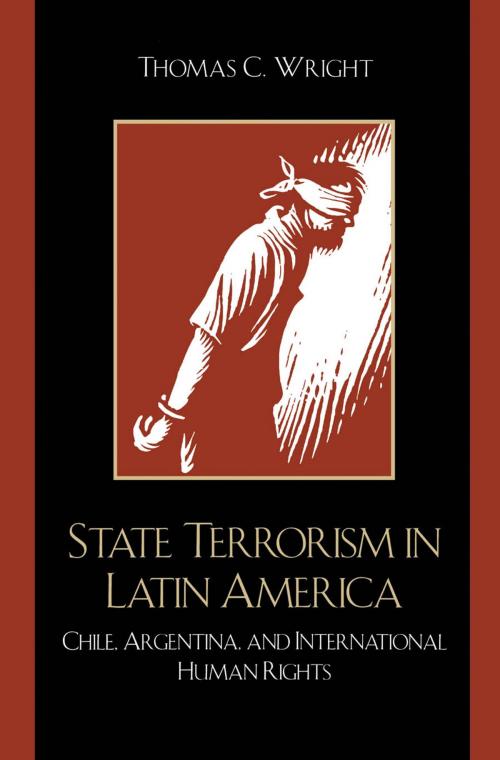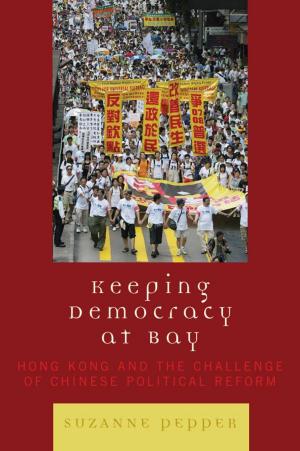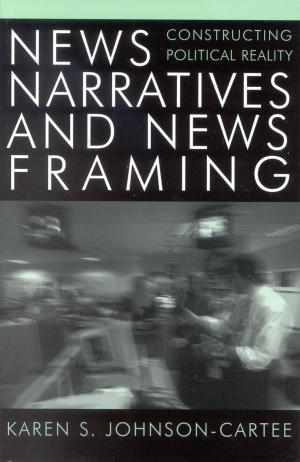State Terrorism in Latin America
Chile, Argentina, and International Human Rights
Nonfiction, History, Americas, Latin America, Social & Cultural Studies, Political Science, Social Science| Author: | Thomas C. Wright | ISBN: | 9781461642800 |
| Publisher: | Rowman & Littlefield Publishers | Publication: | December 15, 2006 |
| Imprint: | Rowman & Littlefield Publishers | Language: | English |
| Author: | Thomas C. Wright |
| ISBN: | 9781461642800 |
| Publisher: | Rowman & Littlefield Publishers |
| Publication: | December 15, 2006 |
| Imprint: | Rowman & Littlefield Publishers |
| Language: | English |
Set in the larger context of the evolution of international human rights, this cogent book examines the tragic development and ultimate resolution of Latin America's human rights crisis of the 1970s and 1980s. Thomas Wright focuses especially on state terrorism in Chile under General Augusto Pinochet (1973–1990) and in Argentina during the Dirty War (1976–1983). The author probes the background of these regimes, the methodology of state terrorism, and the human rights movements that emerged in urgent response to the brutality of institutionalized torture, murder, and disappearance. He also discusses the legacies of state terrorism in the post-dictatorial period, particularly the bitter battle between demands for justice and the military's claim of impunity. Central to this struggle was the politics of memory as two radically different versions of the countries' recent history clashed: had the militaries conducted legitimate wars against subversion or had they exercised terrorism based on a misguided concept of national security?
The book offers a nuanced exploration of the reciprocal relationship between state terrorism and its legacies, on one hand, and international human rights on the other. When the Chilean and Argentine militaries seized power, the international human rights lobby was too weak to prevent the massive toll of state terrorism. But the powerful worldwide response to these regimes ultimately strengthened international human rights treaties, institutions, and jurisprudence, paving the way for the Rwanda and Yugoslavia genocide tribunals and the International Criminal Court. Indeed, Chile and Argentina today routinely try and convict former repressors in their own courts.
This compelling history demonstrates that the experiences of Chile and Argentina contributed to strengthening the international human rights movement, which in turn gave it the influence to affect the outcome in these two South American countries. Ironically, the brutal regimes of Chile and Argentina played the major role in transforming a largely dormant international lobby into a powerful force that today is capable of bringing major repressors from anywhere in the world to justice. These intertwined themes make this book important reading not only for Latin Americanists but for students of human rights and of international relations as well.
Set in the larger context of the evolution of international human rights, this cogent book examines the tragic development and ultimate resolution of Latin America's human rights crisis of the 1970s and 1980s. Thomas Wright focuses especially on state terrorism in Chile under General Augusto Pinochet (1973–1990) and in Argentina during the Dirty War (1976–1983). The author probes the background of these regimes, the methodology of state terrorism, and the human rights movements that emerged in urgent response to the brutality of institutionalized torture, murder, and disappearance. He also discusses the legacies of state terrorism in the post-dictatorial period, particularly the bitter battle between demands for justice and the military's claim of impunity. Central to this struggle was the politics of memory as two radically different versions of the countries' recent history clashed: had the militaries conducted legitimate wars against subversion or had they exercised terrorism based on a misguided concept of national security?
The book offers a nuanced exploration of the reciprocal relationship between state terrorism and its legacies, on one hand, and international human rights on the other. When the Chilean and Argentine militaries seized power, the international human rights lobby was too weak to prevent the massive toll of state terrorism. But the powerful worldwide response to these regimes ultimately strengthened international human rights treaties, institutions, and jurisprudence, paving the way for the Rwanda and Yugoslavia genocide tribunals and the International Criminal Court. Indeed, Chile and Argentina today routinely try and convict former repressors in their own courts.
This compelling history demonstrates that the experiences of Chile and Argentina contributed to strengthening the international human rights movement, which in turn gave it the influence to affect the outcome in these two South American countries. Ironically, the brutal regimes of Chile and Argentina played the major role in transforming a largely dormant international lobby into a powerful force that today is capable of bringing major repressors from anywhere in the world to justice. These intertwined themes make this book important reading not only for Latin Americanists but for students of human rights and of international relations as well.















